Class 3.1: Why everybody should learn math
Methodology of Scientific Research
Andrés Aravena, PhD
31 March 2021
There are several reasons to learn math
- Utilitarian
- To pay the bills and not be cheated
- To get the proper concentrations in the lab
- Practical
- To design the experiments
- To analyze the results of the experiment
- Philosophical
- Understand the meaning of the results
- Connect experiments with the rest of human knowledge
What is the story here?
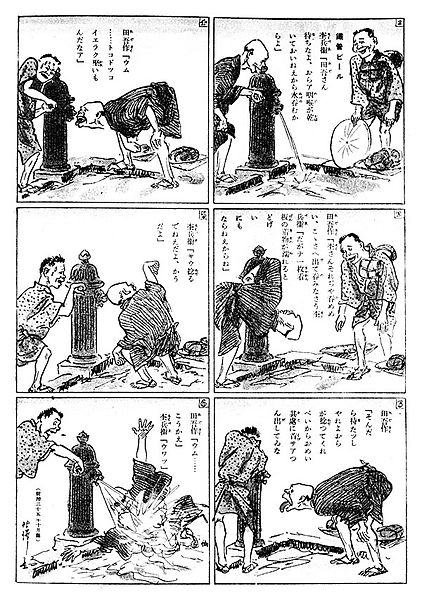
- To understand the story we need to know the language
- Without the language we only see the pictures and try to guess the meaning
- “The laws of Nature are written in the language of mathematics”
The universe […] cannot be understood unless one first learns […] the language and interpret the characters in which it is written. It is written in the language of mathematics, […] without these, one is wandering around in a dark labyrinth.
Galileo Galilei (1564 – 1642),
Italian astronomer, physicist, engineer, philosopher, and mathematician
Maths is a language
The limits of my language are the limits of my world
Ludwig Wittgenstein
Math is “unreasonably effective” in physics
Some natural laws have been discovered using only mathematics. Later experiments validated these theories.
- Newton (Gravity works at scales that Sir Isaac could not foresee),
- Maxwell (predicted the existence of radio, and that light is an electromagnetic wave),
- Boltzmann-Gibbs (connected macroscopic thermodynamics with molecule-scale behavior, before proving that atoms exist),
- Einstein (General Relativity predicted light bending, and the transformation of matter into energy: atomic power),
- Murray Gell-Mann (predicted quarks).
Maths and Biology
Mendel discovered genes using only math
Galton created the first Department of Genetics, and linear correlation
Fisher invented statistics while working at Agricultural research
“Student’s test” was invented by biotech working in beer
Other people are already doing this
Physicists, mathematicians and engineers are publishing papers in molecular biology
Google has a company doing Big Data on 5 million human DNA samples, and correlating with diseases
Harvard Medical School says
Whereas throughout much of the 20th century computational and mathematical biology were niche disciplines, their methods are now becoming an integral part of the practice of biology across all fields.
Stefan et al. “The Quantitative Methods Boot Camp: Teaching Quantitative Thinking and Computing Skills to Graduate Students in the Life Sciences”. PLoS Comput. Biol. 11, 1–12 (2015).
Math is cultural patrimony of humanity
It has been invented and developed independently in several places:
- ancient Babylon, ancient Egypt
- ancient Greece (i.e. Mediterranean and Aegean sea)
- China, India
- Pre-hispanic Mexico
- Golden Age Persia
- European Renaissance, Industrial England, Soviet Union, etc.
We have mathematicians in Turkish money.
Math is cultural patrimony of humanity
- We need to learn math to receive this cultural legacy
- We speak about “Universal literature”
- Architecture
- Painting and Sculptures
- Music
- Cinema
Mathematic belongs to all humanity
Math is essentially human
It is something developed in our minds
It does not exist outside our brains
(although nature’s rules seem to be well described by math)
Plato’s Academy said
According to tradition, in the door there was this text
ἀγεωμέτρητος μὴ εἰσίτω
“ageometretos me eisito”
“Let None But Geometers Enter Here”
(Euclides’ geometry is about logical deduction. It is the way philosophers think)
Good mathematics is as beautiful as art
We need some training to appreciate its beauty
The same happens with art such as
- opera,
- cubist painting,
- modern ballet,
- abstract sculpture,
- and so on.
Research when you do not know math
It is like moving in the city using only the metro:
easy, but you can only go to places that others have already prepared
These places are crowded, and it is hard to be noticed here.
Research when you know some math
It is like having your own car. Depending on your knowledge level, it can be
- a taxi (someone else drives),
- an sedan car (you drive on paved streets),
- a jeep (you can go to much more places, you can fix up when things break down), or
- an experimental autonomous car (you design a new car from the zero)
What do you need to know
You need at least to understand enough mechanics to know
- when to put gasoline,
- When to change oil,
- maybe how to change a tire,
- How to talk to the mechanic so he does not cheat you.
Biologists are not mathematicians
- You do not need to calculate everything
- You do not need to solve everything
- You need to interact with other experts
- Statisticians
- Bioinformaticians
- Computer Scientists
- Applied Mathematicians
Why learn math if we have computers?
Many people has been told that math is about numbers
And computers can do that faster and easier
Do we still need to learn math?
Yes, because computers do not solve problems
Mathematics solves problems. Then computers solve them fast
The truth about computers
Since computers were invented, people say
Garbage in, Garbage out
Computers will always give an answer
If the question is wrong, the answer will also be wrong
Math is a tool for thinking
To have correct answers we must ask the correct questions
This is the real reason we need math
Mathematics is not about numbers, equations, computations or algorithms: it’s about understanding
William Paul Thurston (1946 – 2012),
American mathematician
How much math do we need?
It is a valid question
But I prefer “which kind of mathematics do we need?”
What is mathematics?
- Most people say math is “doing things with numbers”. In other words, when we say mathematics, people thinks of arithmetics
- Geometry is even older. More than 6000 years old
- we also learned set theory in primary school
Starting point
In my opinion, scientists need three fundamental tools
- Logic
- Probabilities
- Single variable calculus
Biologists need also two practical tools
- Matrices
- Networks
Why math is hard?
This has been discussed a lot
There are several combined reasons
Let’s see some of them
First reason
“Math is hard…” ## Well… it depends {.center .Huge}
3 × 4
3 × 4 + 5
34 × 45
345 × 456
We have two brains
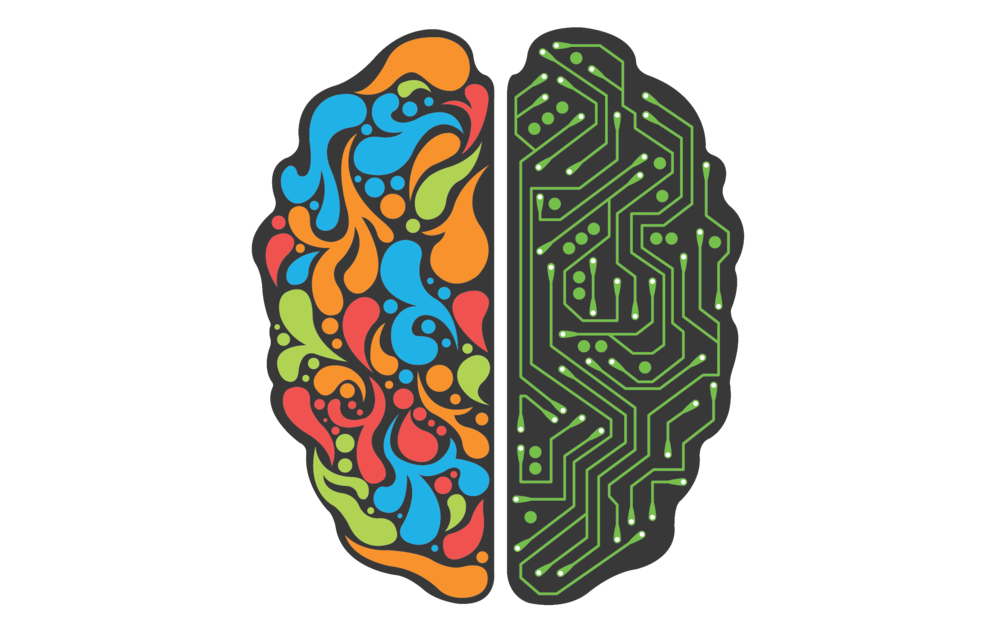
Two systems of thinking
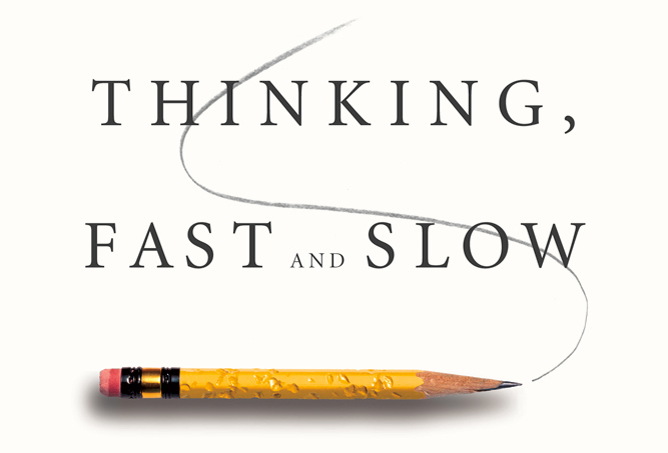
Daniel Kahneman, 2002 Nobel Memorial Prize in Economic Sciences
Two systems of thinking
System 1
Fast
- instinctive
- emotional
- automatic
- cheap
System 2
Slow
- deliberate
- rational
- intentional
- expensive
The priority of our organism is
- Survival
- Save energy
So System 1 is the default mode
Most of the time we use the cheap intuitive system
Rational thinking (i.e. math) is not spontaneous
Doing math is like running 🏃🏻
- It requires energy and willpower
- Everybody can run 10K … if trained correctly

The only way to learn mathematics is to do mathematics
Paul Halmos (1916 – 2006)
Hungarian-born American mathematician
Second difficulty: Math classes
Math classes are hard
- Sometimes the purpose is not clear
- It is hard to learn something if we don’t know why we are learning it
- Unfortunately, in many cases we cannot understand the purpose until we learn a little
For some people, math is an end in itself
These people are “pure mathematicians”
In real life, many mathematical theories have been developed as “games” that mathematicians play, something amusing or beautiful.
Therefore people invented the math before having a real-world motivation.
For example: non-Euclidean geometry is essential to Einstein’s General Relativity, but was invented 50 years before, as a game
Godfrey Harold Hardy
Hardy, a number-theorist from early 20th century, said
I have never done anything “useful.” No discovery of mine has made, or is likely to make, directly or indirectly, for good or ill, the least difference to the amenity of the world
Today his work is essential to the secure communication on the web. Without his work, modern economy would not exist.
Hardy–Weinberg equation is the basis of population genetics
Third reason: Power
“They” do not want to share the power
As we said, mathematics is a superpower
Some people already has that power
And they do not want to share it
Math is not Everywhere
- Through history, high impact mathematics has been know only by few people
- only few people knew the really important mathematics
- In most societies, mathematics has high social value, because it is difficult and exclusive
- Today, elite mathematics gives “special authority” to people who is already powerful
From big pyramids to big data
- Political power in ancient Egypt was based on the “god” status of the pharaoh
- He showed his power by ordering the Nile to grow
- It worked because he had a model of the seasons
From big pyramids to big data
- Today big companies have immense power because they have models of people’s behavior
- They even pay you 2% to get your Big Data
- Supermarkets give fidelity cards with discounts
- Airlines give free flight if you register
- “Knowledge is Power”
Fourth reason: Abstraction
Abstraction
One of the powerful (and difficult) aspects of math is abstraction
- dealing with ideas rather than events: topics will vary in degrees of abstraction.
- freedom from representational qualities in art: geometric abstraction has been a mainstay in her work.
- the process of considering something independently of its associations, attributes, or concrete accompaniments: duty is no longer determined in abstraction from the consequences.
Abstraction
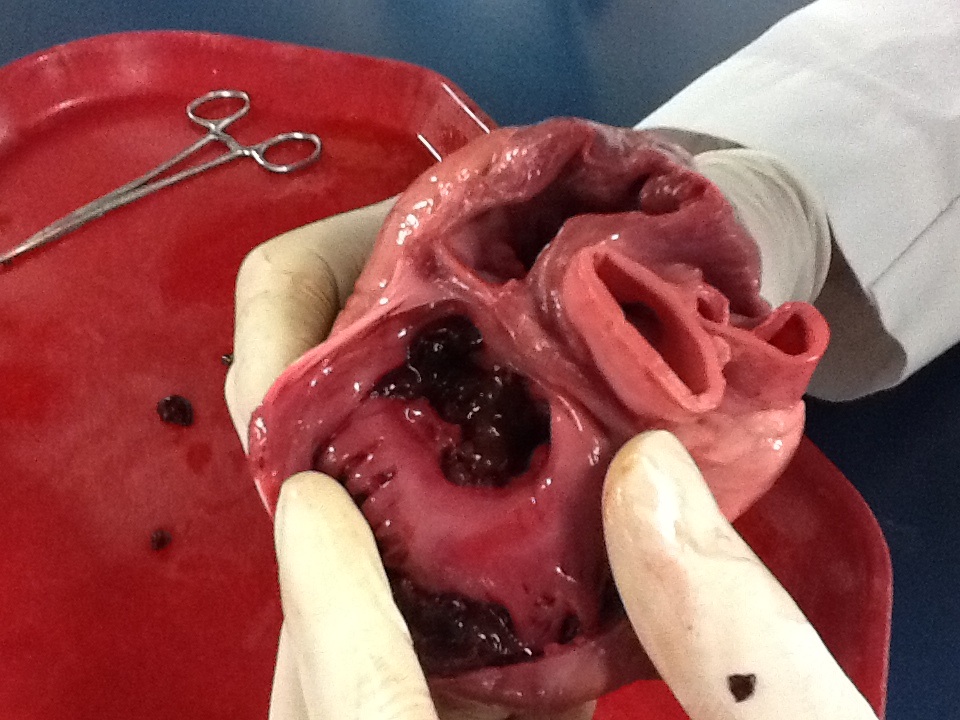
According to “Understanding Comics”
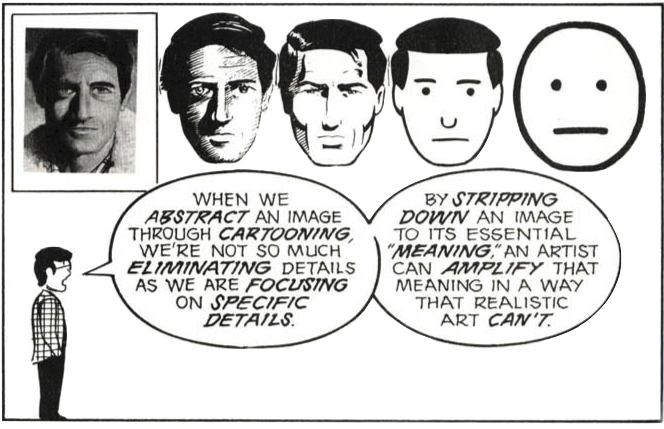
According to “Understanding Comics”
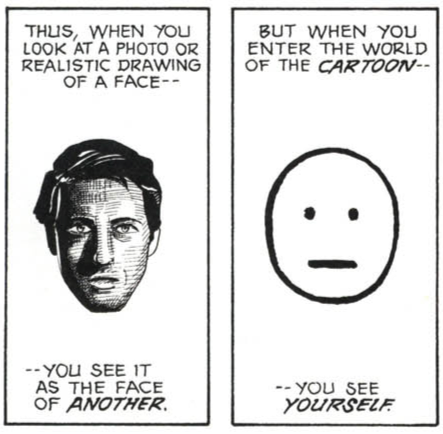
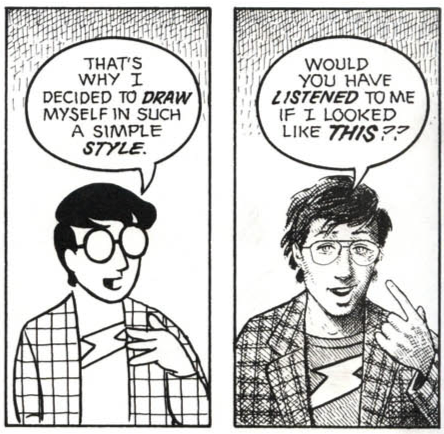
Abstraction means “generalization”
- it is easier to solve a problem when we discard irrelevant details
- Abstract problems can correspond to several applied problems
- Solving one solves all of them
- These connections help us to understand new problems by analogy to old ones
Perspective
If two different problems are connected, we can change perspectives from one to the other
For example, analytic geometry connects algebra and classic geometry
We will do this a lot
Fifth reason: symbols
Symbols
The following is s problem from Diophantus’s Arithmetica.
“Given two numbers, to add to the lesser and to subtract from the greater the same (required) number so as to make the sum in the first case have to the difference in the second case a given ratio.”
In other words
“Given \(a\) and \(b\) and a ratio \(ρ\), find \(x\) such that \(a + x = ρ(b − x).\)”
Mathematic symbols are like pictures
- Good mathematical notation should make it easier to understand the problem, and to find the solution
- Mathematical notation is (almost) universal. It helps to communicate ideas
- Careful notation keeps us honest. It is harder to fool ourselves when we write explicit formulas.

